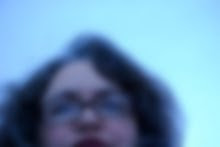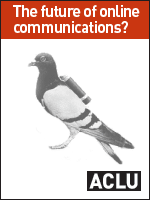On the Shuttle (part II)...
Taking a bus shuttle back and forth to Phoenix, I met a lot of people with whom I wouldn't otherwise have had a chance to talk. Here is a short rundown:
(A) was an airplane mechanic working up at Sky Harbor who himself refused to drive a car or fly in an airplane. It seems a few years back, he had been in a bad car wreck (slammed by an SUV) and had barely made it. Think he even had said he had wanted to give up -- he was in great pain and the recovery was very slow -- but his son kept after him. He admitted to now being too frightened to drive and he had never much trusted airplanes.
(B) was an investigator with the International Criminal Tribunal for the Former Yugoslavia, based in The Hague (Netherlands). He had originally been sent to the former Yugoslavia as a Canadian peacekeeper. He saw the worst of the war in Croatia and Bosnia. Afterwards, he was enjoined to lead on-site investigations of massacres for the Tribunal. I asked him how he locates hidden burial sites and he said, "Well, you know, you just get to know people -- I often meet them in bars -- and they tell you eventually .. oh, I saw a hand sticking up out of the corner of this field." While he was based in Europe, his wife (an American) had decided on Tucson when a cashier one day in a supermarket took the time to walk with them outside and point them to their destination.
(C) was the wife of a career navy man (in purchasing) who was visiting a daughter in Tucson but lived most of the year in England. Both she and her husband vehemently opposed the war in Iraq.
(D) was a young marine, who was home for a short spell to visit his mother, wife and four sisters, all based on the South Side. He had so far (fingers crossed) had a number of good experiences -- described how people in Iraq had invited the soldiers into their homes. He thought they were doing the right thing but shied away from politics. He relayed how his mother didn't leave the house for six months during his first tour of duty for fear that something might happen and she wouldn't be home to receive the call. He was soon to return to Iraq for his second tour.
(E) was a museum curator at a contemporary art museum based in Minneapolis.
(F) was a museum curator at a museum of silver based in Mexico City.
(G), one of the drivers, was a former cryptographer for the Women's Army Corps. She had served during the Viet Nam war in Singapore, where she was relaying and receiving messages that referred to the illegal bombing campaign in Laos and Cambodia (of which there was no public admission). After raising a daughter, she had moved to Tucson to be near family. Ready with a quick laugh, she says she always tells herself "I can have everything I want if I don't want everything."
(H), a former mining engineer, had two daughters serving in the military and two sons in police enforcement. While now also driving for the Arizona Shuttle, as an engineer he had taken his family to live in places as far away as Papua New Guinea and had dug tunnels 4,000 feet underground with giant boring machines (but mostly used TNT). He missed his friends from the mines, including the miners, as they all used to head off to a local Mammouth bar to share a couple of beers after work. His best friend however was from the same small French Canadian village where he had grown up.
(I) was a cross-bow hunter who would take two days to stalk a deer (always used for food). He also liked to take wildlife photos and could identify every Sonoran desert plant and animal. He did however keep a lush garden with a pool full of koi and giant bullfrogs. One day he observed a bullfrog kill a pigeon, who had come to drink at the water's edge.


